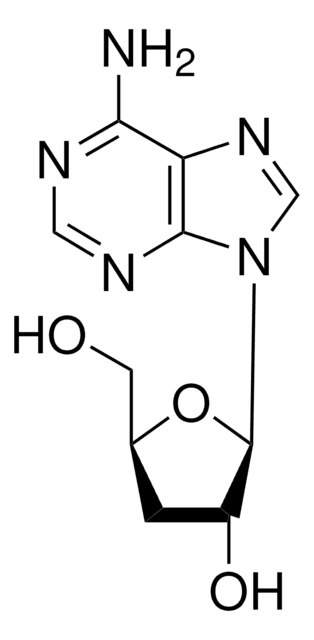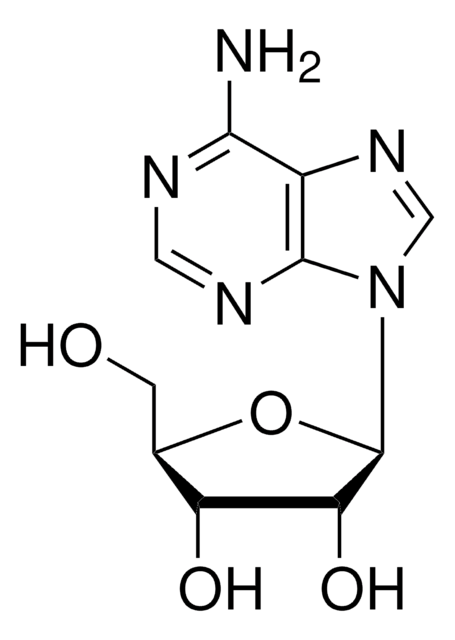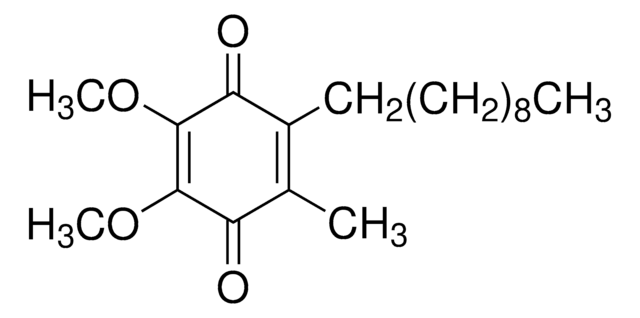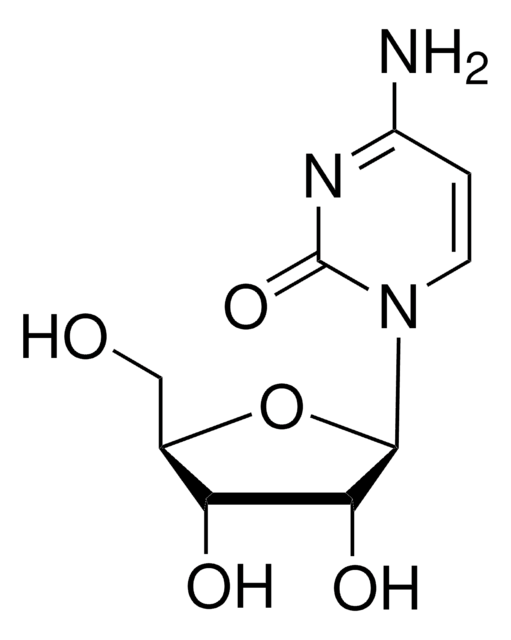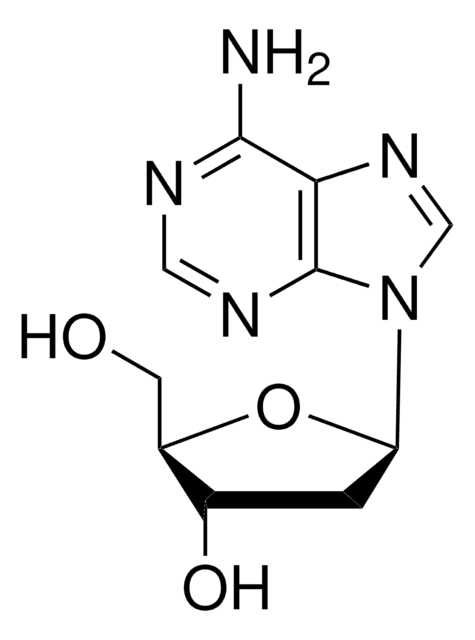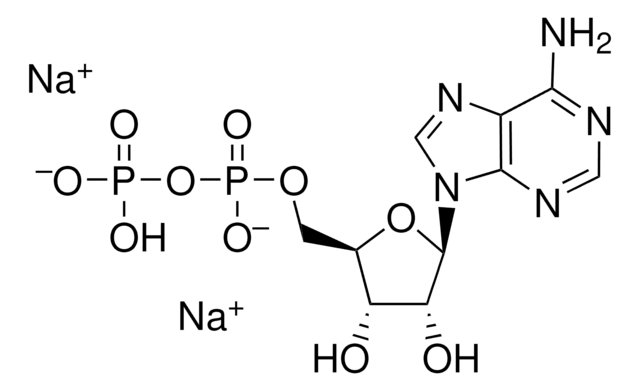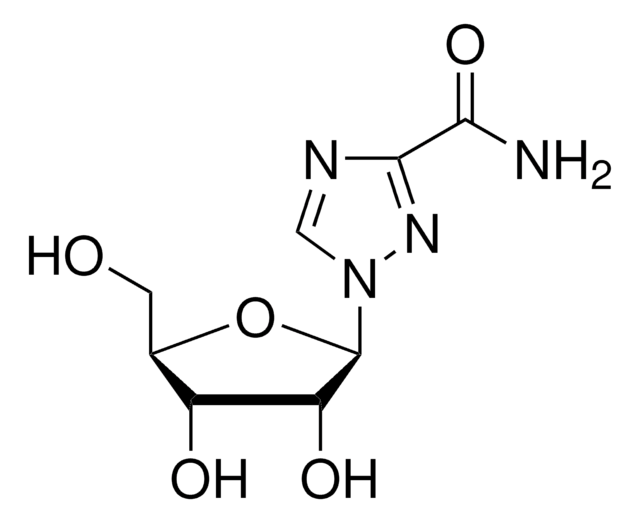C9137
Cordycepin 5′-triphosphate sodium salt
≥95%
Synonym(s):
3′-dATP, 3′-deoxy-ATP, 3′-Deoxyadenosine 5′-triphosphate
About This Item
Recommended Products
Quality Level
Assay
≥95%
form
powder
mol wt
491.18 g/mol
storage temp.
−20°C
SMILES string
[Na].Nc1ncnc2n(cnc12)C3OC(COP(O)(=O)OP(O)(=O)OP(O)(O)=O)CC3O
InChI
1S/C10H16N5O12P3.Na.H/c11-8-7-9(13-3-12-8)15(4-14-7)10-6(16)1-5(25-10)2-24-29(20,21)27-30(22,23)26-28(17,18)19;;/h3-6,10,16H,1-2H2,(H,20,21)(H,22,23)(H2,11,12,13)(H2,17,18,19);;
InChI key
FRGBONDYLMUOMH-UHFFFAOYSA-N
General description
Application
- as a transcriptional inhibitor in RNA decay assay
- to inhibit polyadenylation in HEK293T cells before harvesting for in- vitro interaction studies through co-immunoprecipitation (co-Ips)
- as a positive control in in vitro assays for polymerase inhibition
- as a precursor to produce cordycepin monophosphate
Biochem/physiol Actions
Signal Word
Warning
Hazard Statements
Precautionary Statements
Hazard Classifications
Acute Tox. 4 Oral - Carc. 2 - Eye Irrit. 2 - Skin Irrit. 2 - STOT SE 3
Target Organs
Respiratory system
Storage Class Code
11 - Combustible Solids
WGK
WGK 3
Personal Protective Equipment
Certificates of Analysis (COA)
Search for Certificates of Analysis (COA) by entering the products Lot/Batch Number. Lot and Batch Numbers can be found on a product’s label following the words ‘Lot’ or ‘Batch’.
Already Own This Product?
Find documentation for the products that you have recently purchased in the Document Library.
Customers Also Viewed
Our team of scientists has experience in all areas of research including Life Science, Material Science, Chemical Synthesis, Chromatography, Analytical and many others.
Contact Technical Service